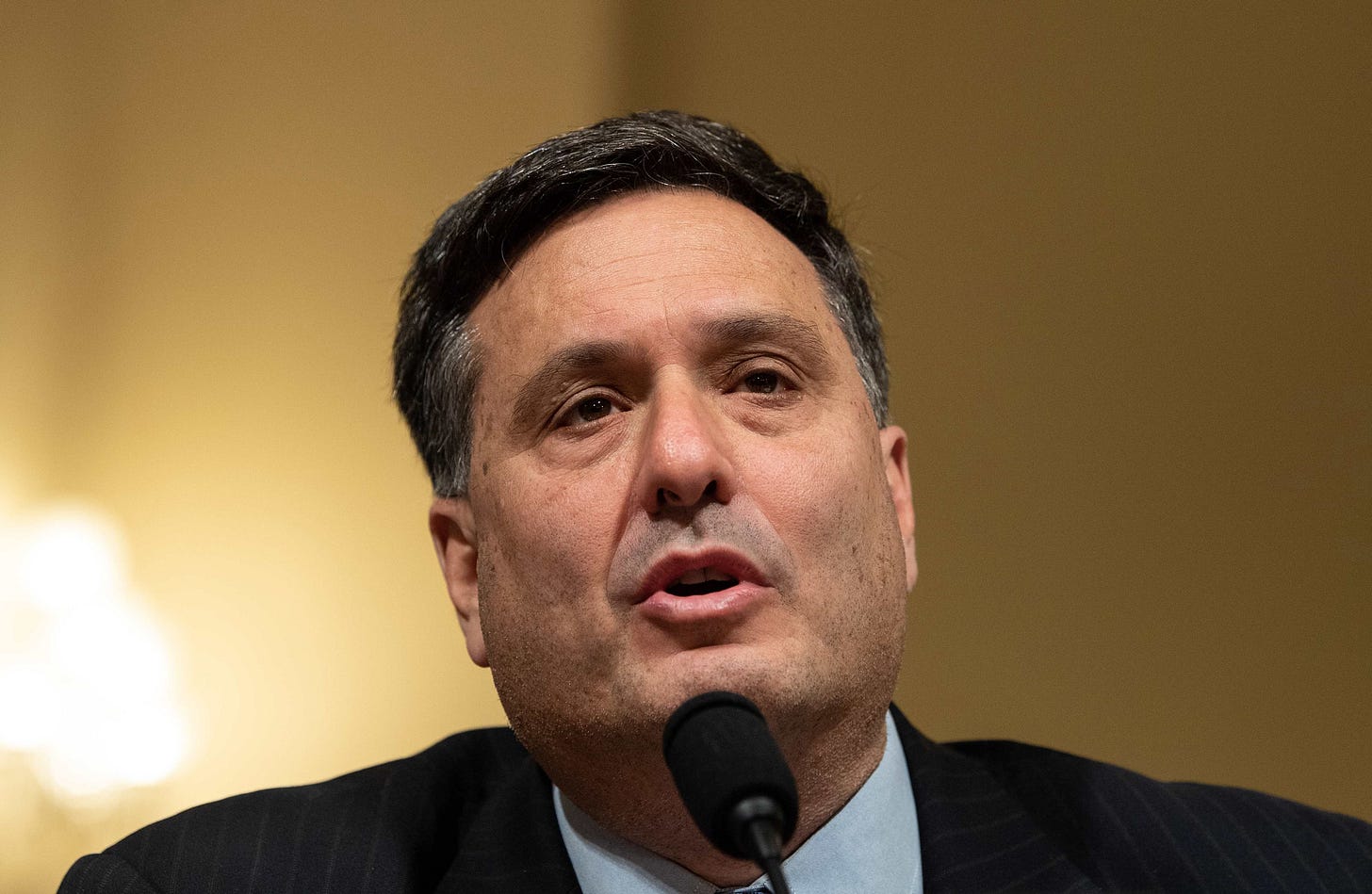[If you don’t feel like reading this post, just click Play above and I’ll read it to you.]
Happy Inauguration Day, Voltsians!
I know it’s getting somewhat tedious to keep saying this, but yes, I’m still working on that transmission post. I swore when I started my own publication that I was not going to rush anymore — that I would research and work on stuff until I was happy with it. But I never swore not to be neurotic and apologetic about it!
Anyway, it’s in the works. Until then, let’s look at a few interesting news developments from this eventful past week.
Biden administration pledges to come out of the gate swinging
A few weeks ago, I shared some simple advice with the Biden administration: blitz. Do everything within your power, as fast as possible, and don’t get tripped up trying to finesse the media narrative or secure chimerical congressional cooperation.
In what is clearly a direct response to my piece (I mean probably), the administration recently leaked plans for its first term, to be kicked off with a 10-day spree of executive actions — roughly a dozen on Day One alone. CTV News got the scoop from a memo by incoming Biden Chief of Staff Ron Klain, which Politico subsequently confirmed.
I really encourage you to click over and read the list — it’s the best I’ve felt in ages. So many lives will be immediately improved through health, immigration, and Covid relief measures. Elections really do matter.
But we’re here to talk about climate and energy, so I went through and picked out the relevant stuff:
Wednesday, after inauguration
Declaration that the U.S. is rejoining Paris climate accord.
Start of a process to restore 100 public health and environmental rules that the Obama administration created and President Donald Trump eliminated or weakened.
Not included in the memo but confirmed by CNN reporting: rescind the permit for the Keystone XL pipeline.
By February 1
Executive actions to address climate change.
Beyond
Win passage of a $2 trillion climate package to get the U.S. to net-zero carbon emissions by 2050.
Win passage of a plan to spend $700 billion boosting manufacturing and research and development.
The list suggests that the administration is going to move aggressively on multiple fronts, but it doesn’t reveal much about what direction it will go on climate.

The last two items are going to be pure messaging efforts — as long as the filibuster remains in place, neither has a chance of passage in Congress.
The first item, getting back in the Paris agreement, is low-hanging fruit, more symbolic than impactful. Ultimately, a Paris pledge is simply a pledge to pass domestic carbon policy, so it’s the domestic carbon policy that really matters.
The second item, cleaning up Trump’s regulatory mess, is extremely important, but it’s a matter of restoration, not building. The third item, Keystone XL, is a genuinely nice-to-see nod to climate activists, but not that big a deal in carbon terms.
So everything rides on that vague fourth item: “Executive actions to address climate change.” Will Biden’s EPA launch work on new rules to tackle fuel economy? A new plan to decarbonize the electricity sector? More stringent rules on air pollution? Rules that encourage building electrification?
My fear is that the administration will put off that work, thinking that being gentle will make legislation easier. It won’t. Just do the rules!
Court strikes down Trump’s plan to (not) regulate power plants
Tuesday brought a bit of good fortune that will make Biden’s work easier: a federal court struck down one of Trump’s most important climate rollbacks, and not only that, repudiated the legal argument it was based on.
Some background:
The Obama administration’s plan to reduce greenhouse gas emissions from power plants — the Clean Power Plan — was stuck in legal limbo, waiting on a federal court ruling, when Trump came into power and squashed it for good. It never got the ruling or went into effect.
The argument before the court was over whether the Clean Air Act grants EPA the authority to regulate air pollutants “beyond the fenceline.” The Clean Power Plan was extremely flexible, allowing states to meet their reduction targets through a portfolio of compliance strategies, many of which (like building new renewables or increasing energy efficiency) took place outside of the regulated power plants themselves — beyond the fenceline.
Republican lawyers argued that EPA regulations can only mandate changes “within the fenceline,” which, when it comes to something like a coal plant, amounts to some modest efficiency improvements.
When the rule and the lawsuit were scrapped, Trump’s EPA developed a replacement plan based on that legal interpretation: the Affordable Clean Energy (ACE) rule.
Now, pretty much all the rules that came out of the Trump administration were shoddy and ridiculous, but ACE was something special. Studies found that the rule would lead to an increase in carbon emissions, because it would enable some coal plants to run more often. EPA’s own regulatory impact analysis found the rule would lead to as many as 1,400 additional deaths per year by 2030.
Yes, you read that right: it was a pollution rule that would have led to more pollution and more deaths than passing no rule at all.
It was super-dumb. Happily, a key federal court agrees: the DC Circuit Court of Appeals just struck ACE down. The ruling said that the administration “fundamentally has misconceived the law” in restricting changes to within the fenceline, effectively endorsing the Obama administration’s much more expansive interpretation.
That means Biden’s EPA will not have to go through the laborious process of rolling back the ACE rule. Instead it can begin with a blank slate — “consider the question afresh,” as the court put it — and come up with a plan as flexible as Obama’s, but much more ambitious. It’s a fortuitous bit of news, fortuitously timed.
And we begin our course in advanced Manchin studies
West Virginia Sen. Joe Manchin (D-ish) — who incoming Senate Majority Leader Chuck Schumer has inexplicably made the chair of the Senate Energy and Natural Resources Committee — recently gave an interview to the conservative Washington Examiner in which he said a bunch of ridiculous stuff like, “you cannot eliminate your way to a cleaner environment. You can innovate your way.”
Sigh. I was disheartened, and said so on Twitter.
I was subsequently assured by several people I trust that this is just Manchin being Manchin, saying the kinds of things that will appeal to whatever audience he happens to be speaking to.
In fact, I’m told, while Manchin is obliged by the Republican lean in his state to voice opposition to heavy-handed (read: any) regulation, he is in fact open to the kind of historic investments that would transform the energy landscape. He hasn’t ruled out DC statehood. He’s softer on the filibuster than it seems. He’ll be willing to bargain when it comes time for budget reconciliation.
Congressional insiders seem weirdly optimistic about the possibilities under Manchin. So maybe I’m wrong! Maybe he is more flexible than he’s making out and will come through when circumstances demand it. I hope so.
Either way, we’re all going to be studying this guy’s every word and expression for clues, for four years, so get used to it.
Feline representation matters
My dogs Forest and Mabel get most of the glory here at Volts, but I also have two cats, Anakin and Obi-Wan. They are old — my family got them when I was away attending Obama’s 2008 inauguration, ironically enough — and not particularly fond of sitting for pictures.
They do like a good cuddle, though, and are willing to look at you exactly like this until you comply.
Thanks for reading, everyone.


















